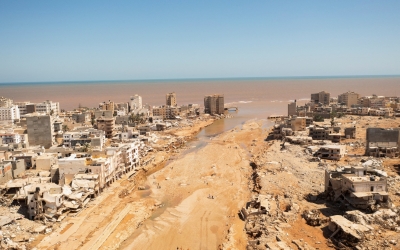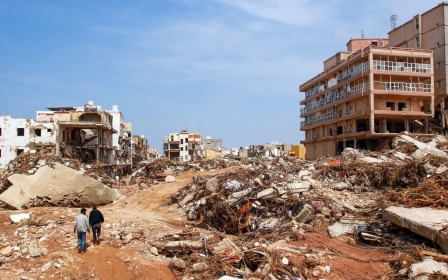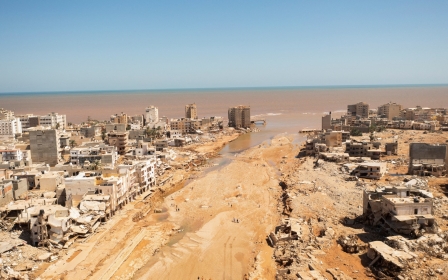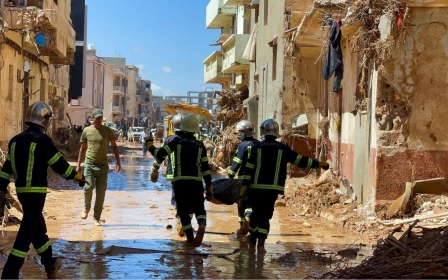Libya floods: Fury as parliament speaker calls Derna devastation 'fate' and inescapable
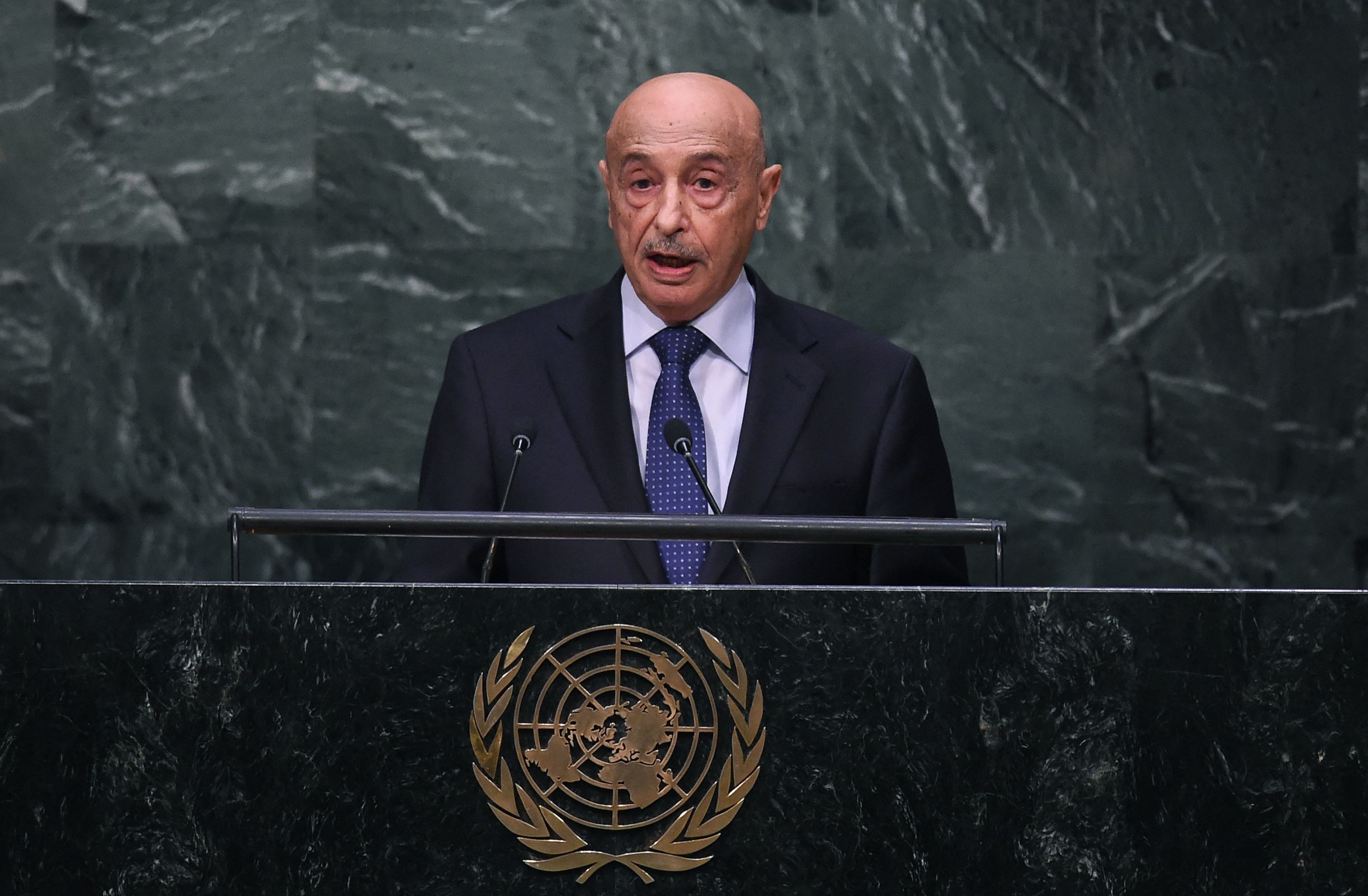
The head of Libya's eastern parliament has provoked anger after calling the deaths of thousands in the Derna flooding "fate" and denying anything could have been done to prevent them.
Speaking in the House of Representatives on Thursday, Agila Saleh said the widespread destruction that has hammered the Libyan city over the past week was a "natural catastrophe from which there was no escape" and that criticism of officials or accusations of incompetence or mismanagement was unfair.
"Don't say we should have done this or that," he said.
His comments come just a day after the UN warned that most of the deaths from the floods in Libya - that have left more than 5,200 dead in Derna alone - could have been avoided if early warning and emergency management systems were in working order.
The UN's World Meteorological Organisation (WMO) Secretary-General Petteri Taalas told reporters in Geneva: "The emergency management authorities would have been able to carry out the evacuation of the people and we could have avoided most of the human casualties."
New MEE newsletter: Jerusalem Dispatch
Sign up to get the latest insights and analysis on Israel-Palestine, alongside Turkey Unpacked and other MEE newsletters
While Libya's national meteorological centre did issue warnings for extreme weather 72 hours before the storm hit, WMO's regional office said it wasn't clear "whether [the warnings] were effectively disseminated".
The comments by Saleh, whose nephew is the mayor of Derna, provoked a backlash from many Libyans.
Journalist and commentator Khalil Elhassi said Saleh "mocks Libya and the Libyans" and was refusing to show "any sense of responsibility".
"That means studying mistakes, determining responsibility, and doing justice to the victims is empty talk for him," he tweeted.
Two dams collapsed in Derna on Monday when a tropical storm unleashed floods down the Wadi Derna, a river running from eastern Libya's Green Mountains through the city and into the sea.
Entire neighbourhoods were swept away and around 10,000 people are still missing.
Abdulmenam al-Ghaithi, Derna's mayor, told Saudi broadcaster Al-Arabiya on Wednesday that the death toll could reach between 18,000 and 20,000, based on how many neighbourhoods were destroyed.
Better maintained
Libya has been in a state of unrest and instability since 2011 when a Nato-backed uprising toppled longtime ruler Muammar Gaddafi, leaving the country deeply fractured and lacking a strong central government.
The country of seven million is divided between those ruled by an internationally recognised government based in the capital, Tripoli, and a separate administration governing the disaster-hit east.
On Thursday, Mohamed al-Menfi, head of the three-member council that acts as the presidency of the Tripoli-based government, said the council would ask Libya's attorney general to investigate the disaster.
He said that those responsible for the failure of the two dams in Derna should be held to account.
A report by an academic at Omar Al-Mukhtar University in Libya published last year predicted that the Derna area had a high potential for flood risk, and its dams required frequent maintenance.
"Dams in Libya are in weak condition and maintenance is not a priority," Malak Altaeb, an independent consultant and researcher on environmental policy told Middle East Eye on Wednesday.
"If the dams were better maintained, it would have effectively reduced the devastation."
Middle East Eye delivers independent and unrivalled coverage and analysis of the Middle East, North Africa and beyond. To learn more about republishing this content and the associated fees, please fill out this form. More about MEE can be found here.


